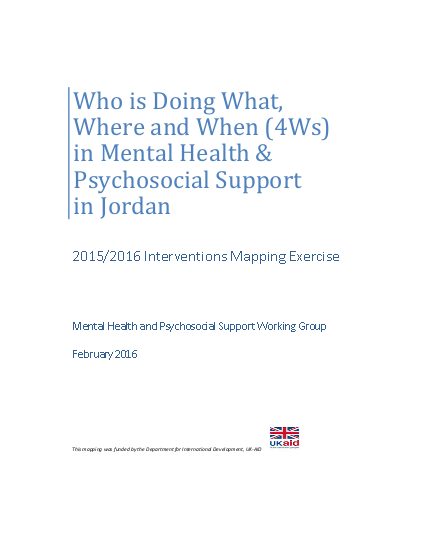
The Inter-Agency Standing Committee (IASC), a global humanitarian body devoted to the improvement of humanitarian coordination, established a Task Force on Mental Health and Psychosocial Support (MHPSS) in emergency settings in 2005, to address the need for concrete guidance on how to organize mental health and psychosocial support in emergencies. Its members consist of UN agencies, the International Federation of Red Cross and Red Crescent Societies, a large consortium of NGOs such as the International Council of Voluntary Agencies and Interaction, as well as NGOs. In 2007, the Task Force achieved its initial goal of developing a practical, inter-agency, multi-sectoral guidance with the publication of the IASC Guidelines on Mental Health and Psychosocial Support in Emergency Settings.
This mapping took place during a time of turmoil within the Eastern Mediterranean Region, with ongoing conflict in several areas including Syria, Iraq and Yemen. Now approaching its sixth year, the Syrian conflict has forced well over 4.7 million of the country’s citizens to take refuge in neighboring countries. To date, it is estimated that over 639,704 displaced Syrians reside in Jordan,1 while government sources estimate an even higher number.2 Exposure to violence, loss and displacement, in addition to social and psychological stressors after displacement, as well as pre-existing MHPSS problems, have various implications on the MHPSS sub-sector and services in Jordan.
